M&B II: Bannerlord Companions Overview¶
The companion system in Mount & Blade II: Bannerlord allows you to customize almost every aspect of each companion. You can choose what weapons and armour they use, what attributes, skills and perks they will invest in, and even what role they will play in your clan between Scout, Engineer, Quartermaster, and Surgeon. The only thing you have no control over is their backstory. Other than that, a companion is effectively a highly specialised, powerful hero unit which prove invaluable as you adventure through Calradia and expand your influence. Aside from their contributions to battle scenarios, they are also an essential requirement if you want to purchase a caravan or invest in a workshop for trade purposes. When doing so, it is important to consider their particular strengths and weaknesses, as discussed below.
How to Find and Recruit Companions¶
There are numerous companions throughout the world of Calradia, each residing in taverns within the larger settlements on the map. To find them, all you have to do is visit a large settlement and check the list of NPCs associated with the tavern at the top right of your screen. The initial set of NPCs that you see will be merchants, gang leaders, and other powerful individuals who reside in the main area of the settlement. You will need to click on the tavern district before these will be replaced by NPCs located specifically within the tavern. This provides an easy method to see an overview of available companions at that particular settlement. You can also choose to speak with them to learn more about their backstory and skill set from this tab. To view the the points invested in their specific skills, you can search the companion’s name in the encyclopedia, which can be accessed by pressing [N].
In Bannerlord, learning the backstory of a potential companion when you speak with them doesn’t just serve as immersion filler. It also gives you an idea of how reliable the companion might be, what their strengths and weaknesses are, and how they might gel with your other companions. As you read the introductory dialogue for a particular companion, pay attention to what they’re saying about how they got where they are now. Some might say that they’re in it for the money and power, others might want to be a part of something greater than themselves, or you might find some who simply love killing and have no desire to hide from that disposition. If you want companions to stay, it is important to choose those with traits which work well together. An honest merchant type won’t necessarily get along with a deceptive rogue, for example.
In some cases, you might find someone who wants to earn a specific amount of money and then go on to do their own thing. This isn’t an empty gesture. If you want to keep them, you will need to regularly interact with them and keep them happy. You can track your relation with a companion by searching for their name in the encyclopedia (press [N] to access in game). If you maintain good relations and invest in social skills, you will increase your chances of persuading companions to stay when they’re thinking about leaving. Before you recruit a companion, each of which generally cost between 1,400 - 3,000 denars, you can also use the encyclopedia to learn more details about their strengths, weaknesses, disposition, culture, age, and occupation. For easy access to view the skills of a specific companion, simply right click their image on the character tab from the tavern menu.
(1 of 3) You will find a list of all companions in your specific game world by navigating to ‘Heroes’ and then ‘Wanderer’.
Companion Roles, Skills, Culture & Traits¶
Roles¶
There are currently four main companion roles which can be assigned once per companion. Each role will allow the companion to specialise in skills relevant to it. For example, if you assign one of your companions to be a surgeon, they will begin to develop skills in medicine after each battle. As the skills develop and as you invest more attribute, skill, and perk points into them, the companion will become more proficient at healing your party and reducing the recovery time for wounded troops. It is important to remember that if you want your own character to specialise in one of these roles to increase the rate of learning its associated skills, you should not assign the role to any of your companions. If you do, they will gain most of the experience associated with the role and its skills, rather than yourself. Once a role is assigned, it can be changed at any time and assigned to any other companion.
-
Scout: Improves tracking by revealing more information on the map and reduces draw distance for settlements and parties. Associated skill: Scouting
-
Engineer: Improves quality and build time for siege engines, and reduces construction time for all structures. Associated skill: Engineering
-
Quartermaster: Increases party size and morale, improves settlement prosperity and structure build time. Associated skill: Steward
-
Surgeon: Improves healing rate of wounded troops, reduces infections and diseases, decreases risk of terminal illness. Associated skill: Medicine
(1 of 2) When viewing your companion from the character menu, click on the information icon to the left of the avatar to view the party bonuses associated with each skill in more detail.
When viewing your companion from the character menu, click on the information icon to the left of the avatar to view the party bonuses associated with each skill in more detail. (left), You can assign clan roles from the clan menu by clicking on the companion that you want to assign a role to, and then choosing the role form the drop down menu. (right)
Skills¶
The companion that you choose to assign to a particular role will benefit from having some inherent qualities which are relevant to that role. Although many companions have a basic competence in combat, whether melee or ranged, not all companions have skills in governance, engineering, tactics, or social skills. The surname of a companion provides a hint about their strengths. For example, ‘Bloodaxe’ is a good indication that the companion will be skilled in melee combat primarily, but may not know much of anything else. ‘Scholar’ hints at competence in medicine and engineering, and ‘Wainwright’ implies primary skill in engineering. Below is a brief overview detailing the primary strengths associated with each type of surname.
-
Healers: ‘the Scholar’; ‘the Healer’; ‘the Surgeon’; ‘Willowbark’
-
Engineers: ‘the Wainwright’; ‘the Engineer’; ‘the Knowing’; ‘the Scholar’
-
Tacticians: ‘the Golden’; ‘the Falcon’; ‘the Silent’; ‘the Brave’; ‘the Lucky’; ‘the Outcast’
-
Scouts: ‘of the Wastes’; ‘of the Hills’; ‘Horsethief’; ‘the Huntress’; ‘Frostbeard’; ‘Blacktooth’; ‘Cowthief’; ‘the Alone’; ‘the Fish’; ‘the Ragged’; ‘the Wanderer’
-
Rogues: ‘the Prince’; ‘the Hyena’; ‘the Leopardess’; ‘the Butcher’; ‘the Shark’; ‘Longknife’; ‘the Mad’; ‘the Robber’; ‘the Accursed’
In terms of basic combat skills, ‘the Swordsman’ ‘Bloodaxe’, ‘the She-Wolf’, and ‘Coalbiter’ are the most proficient with two-handed weapons, while ‘the Golden’ excel with one-handed, polearms, and throwing weapons. ‘the Spicevendor’, ‘the Huntress’, and ‘the Grizzled’ excel with crossbows, and ‘of the Wastes’ with bows. These warrior companions are also adept in the Tactics skill, which will increase your chances of a successful outcome in simulation battles. For those companions that you want to assign as governors, the skills with the most direct impact on settlement management are Medicine and Engineering. The former ensures that your populace remains healthy and recovers from sieges quickly, while the latter allows you to build faster and learn more building types.
Culture & Traits¶
In addition to levelling skills associated with specific roles, you should also consider the culture of a potential companion. While this doesn’t necessarily count as a skill, it is extremely important in the mid to late game. This is because when you assign a companion to govern a particular settlement, the populace may be impossible to please if the companion does not belong to the native culture. You should therefore choose your companions in accordance with the land that you eventually plan to govern. The culture of a potential companion can be found on their encyclopedia page.
Alongside culture, your companions will have specific traits which are inherent to their character. In the current build, these are:
- Honest (Honor 1)
- Generous (Generosity 1)
- Merciful (Mercy 1)
- Daring (Valor 1)
- Closefisted (Generosity -1)
- Deceitful (Honor -2)
- Cruel (Mercy -1)
- Devious (Honor -1)
- Cautious (Valor -1)
You will have your own set of traits based on the background that you chose for your character. These can be viewed from the clan menu when you select your character, as can those of your companions. The more traits that you share with your companions, the better your relations will be with them. The actions that you take as a leader will also influence the response from your companions, based on their traits. For examaple, if one of your companions possesses the Merciful trait, they will not support needless killing of lords or prisoners. If they have the Cruel trait, they will be supportive when you raid villages. If you continue to do things which your companions disagree with, they will be more likely to want to leave your clan or even betray you.
(1 of 2) You can view character traits by navigating to the clan menu and selecting each companion.
You can view character traits by navigating to the clan menu and selecting each companion. (left), Some companions will have both good and bad traits which may seem to conflict. These will allow for more morally ambiguous acts, alongside acts of kindness, without detriment to their loyalty. (right)
How to Increase Companion Limit¶
There is an initial limit of 4 companions for your clan. However, you can increase this limit as you grow your clan. For each new clan tier achieved, your companion limit will increase by 1, allowing for a maximum of 9 companions from this method alone.
To further increase the companion limit, you can acquire the level 250 We Pledge our Swords perk from the Leadership skill perk tree. The more companions that you have, the more you can set to specific tasks to increase your influence. The ability to acquire more companions isn’t exclusively useful for combat situations, it can also increase your wealth as you purchase more workshops and caravans. In the mid to late game, you will also need companions to govern settlements as you increase your territory.
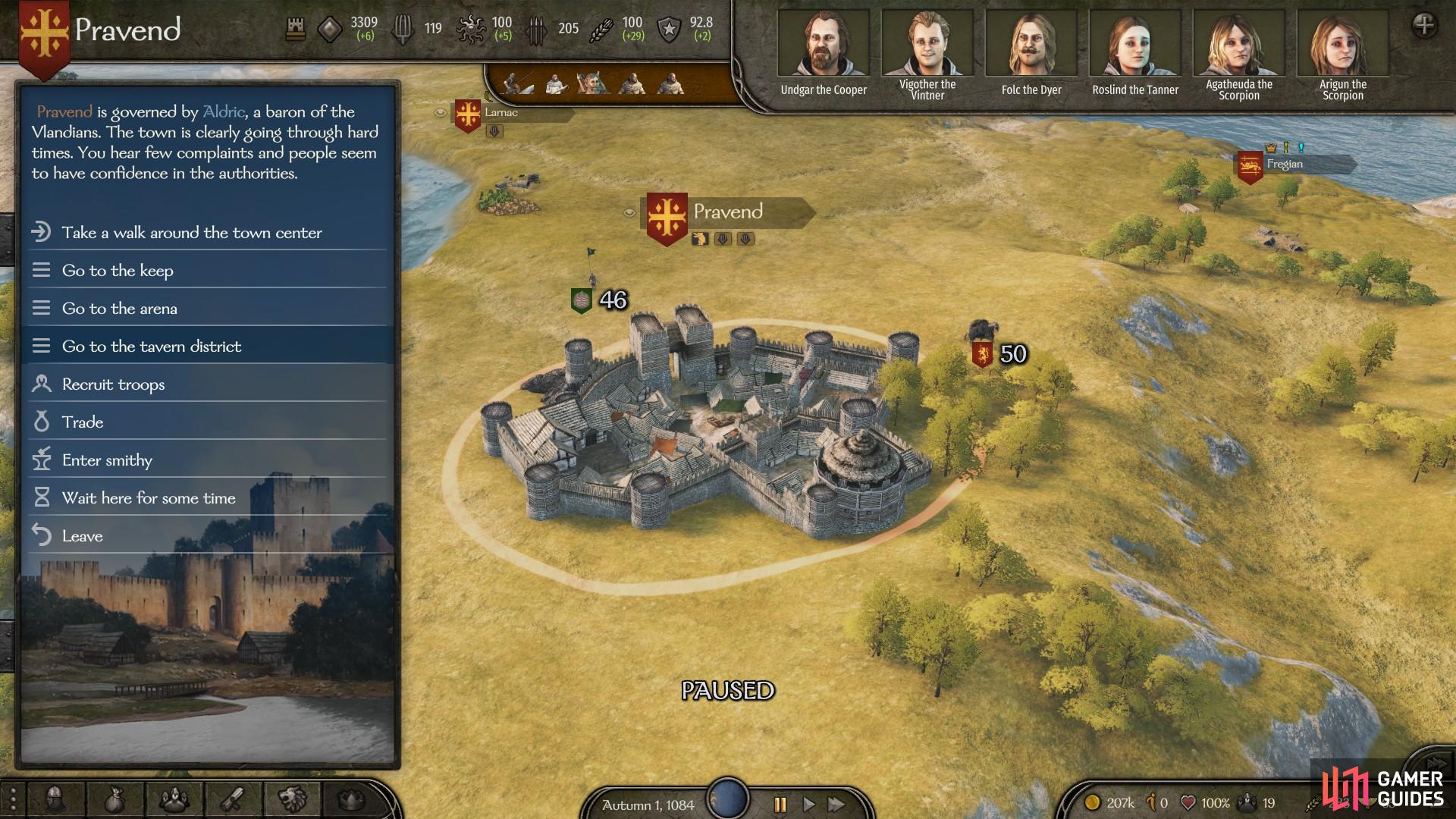
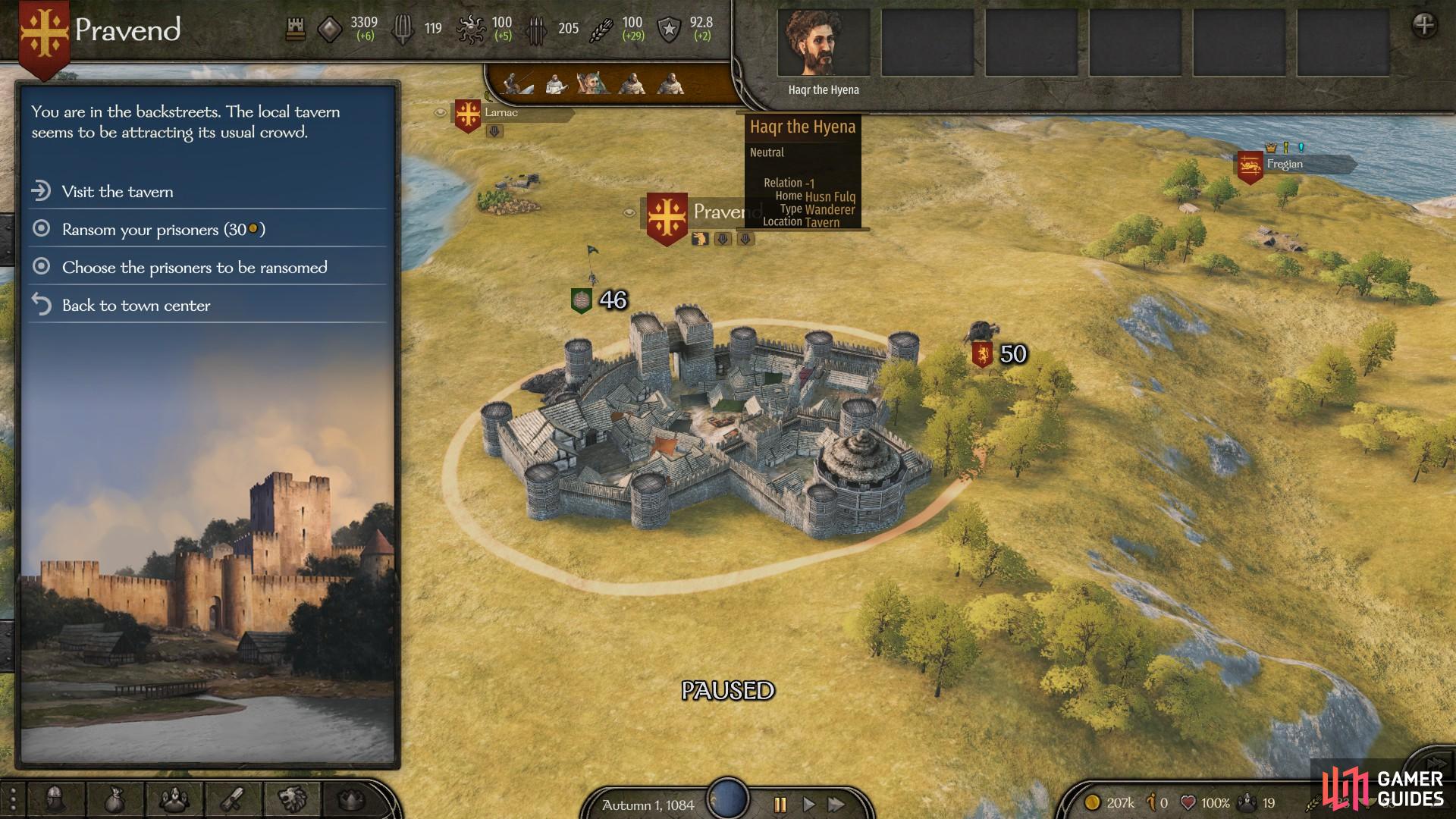
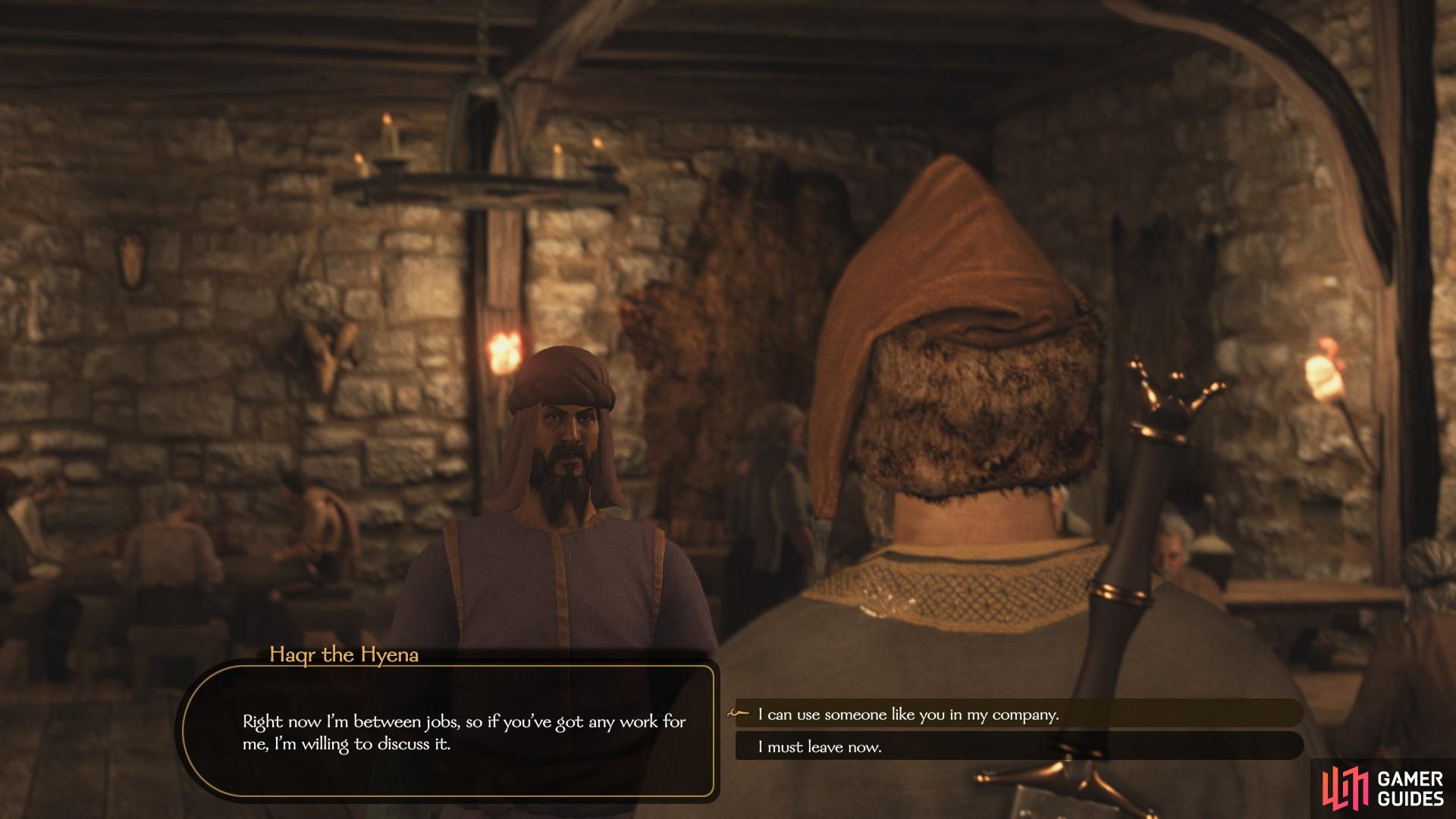
![Press [N] to open the encyclopedia, then click ‘Heroes’ and navigate to ‘Wanderer’. for a list of companions.](/assets/guides/resize200x-/200/Bannerlord_Companion_Recruit_4.jpg)
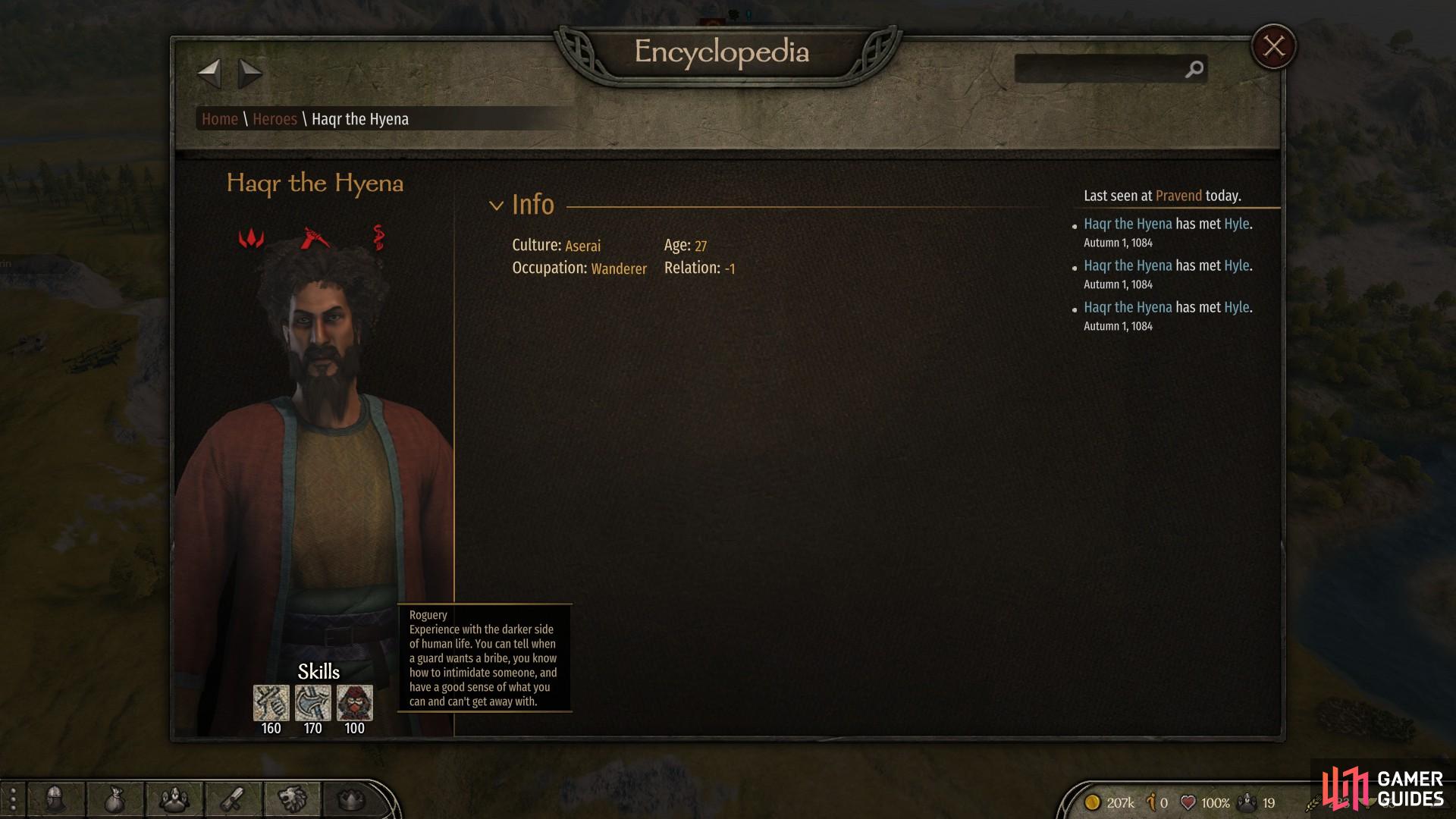
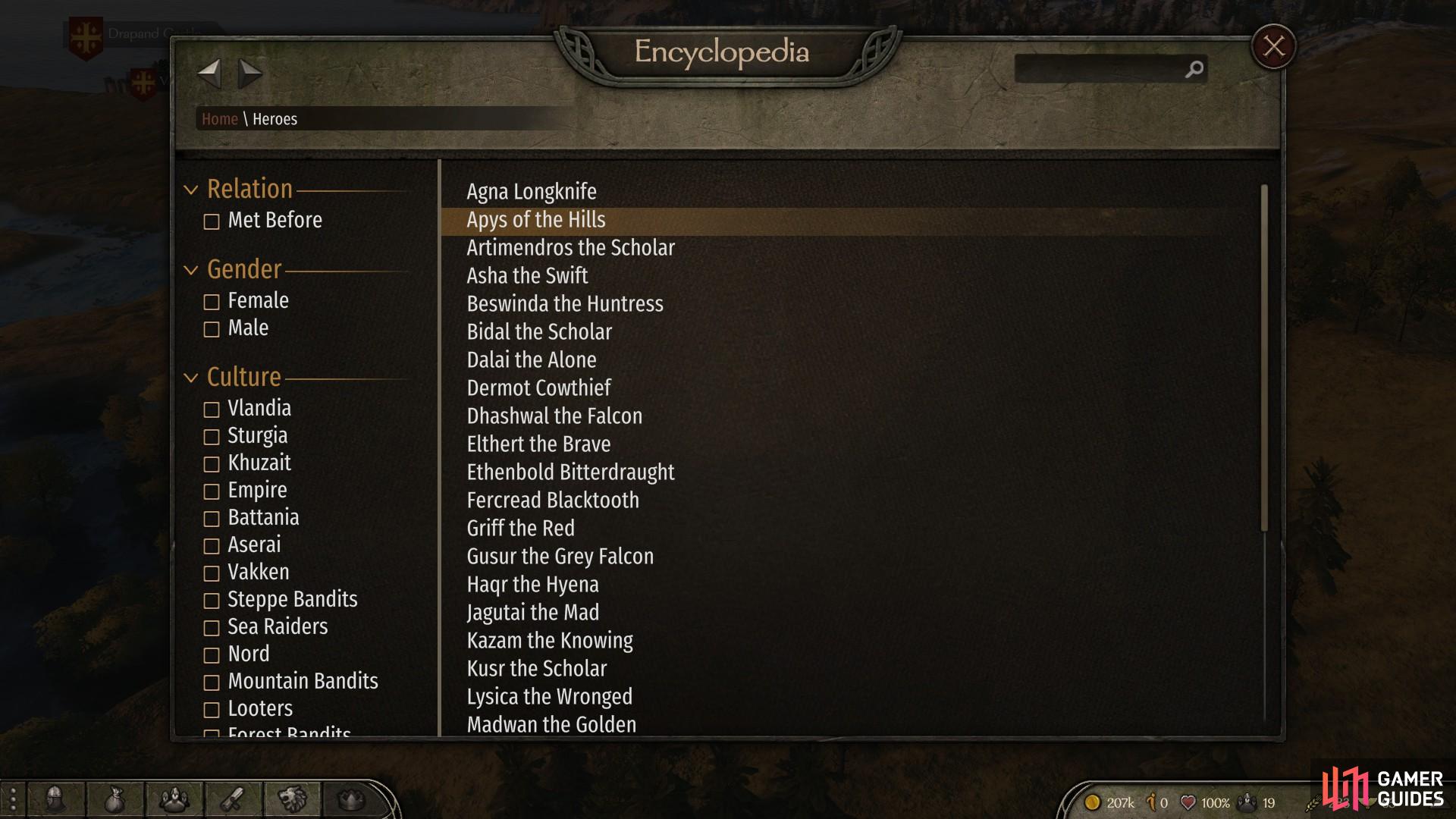
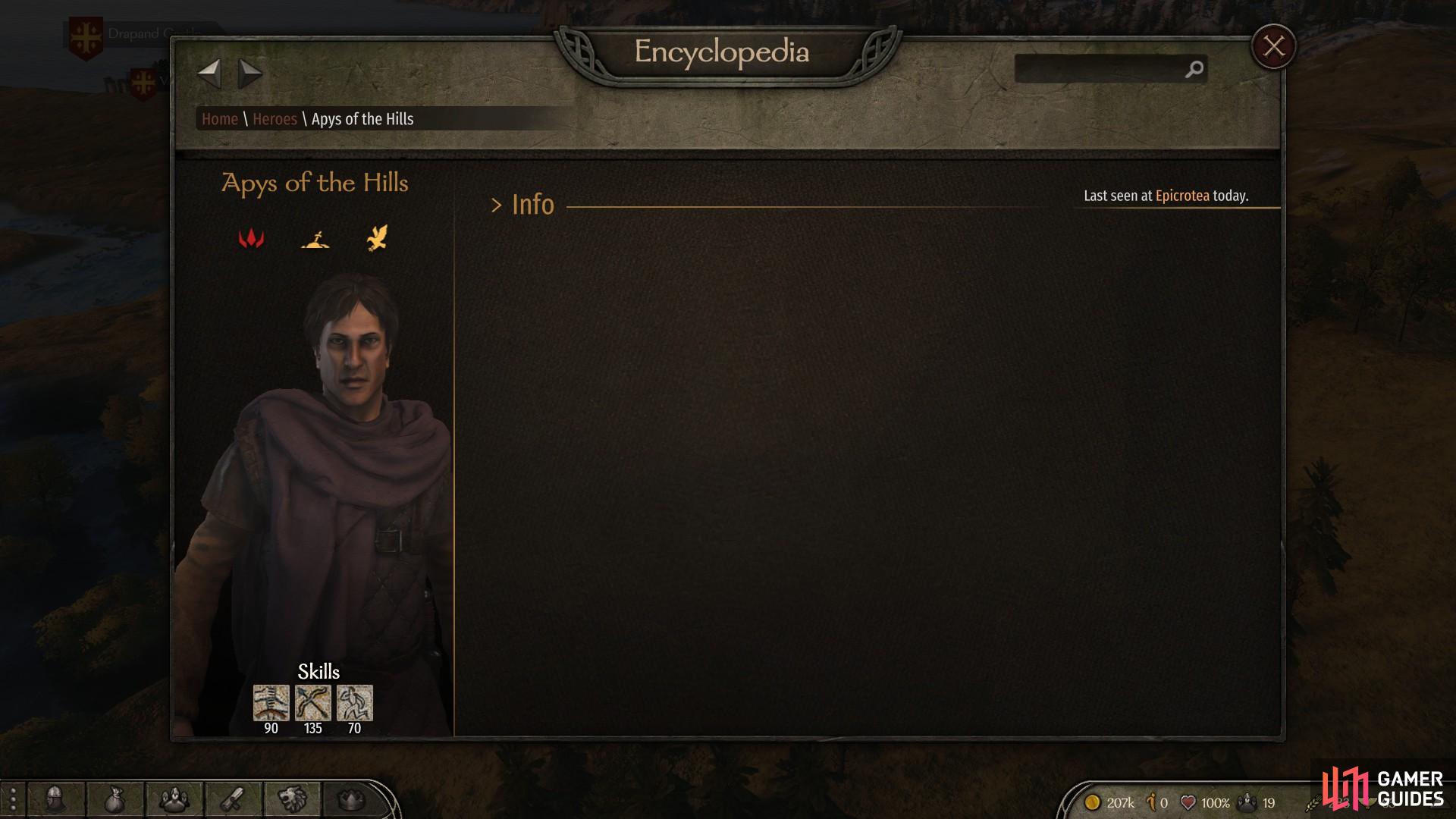
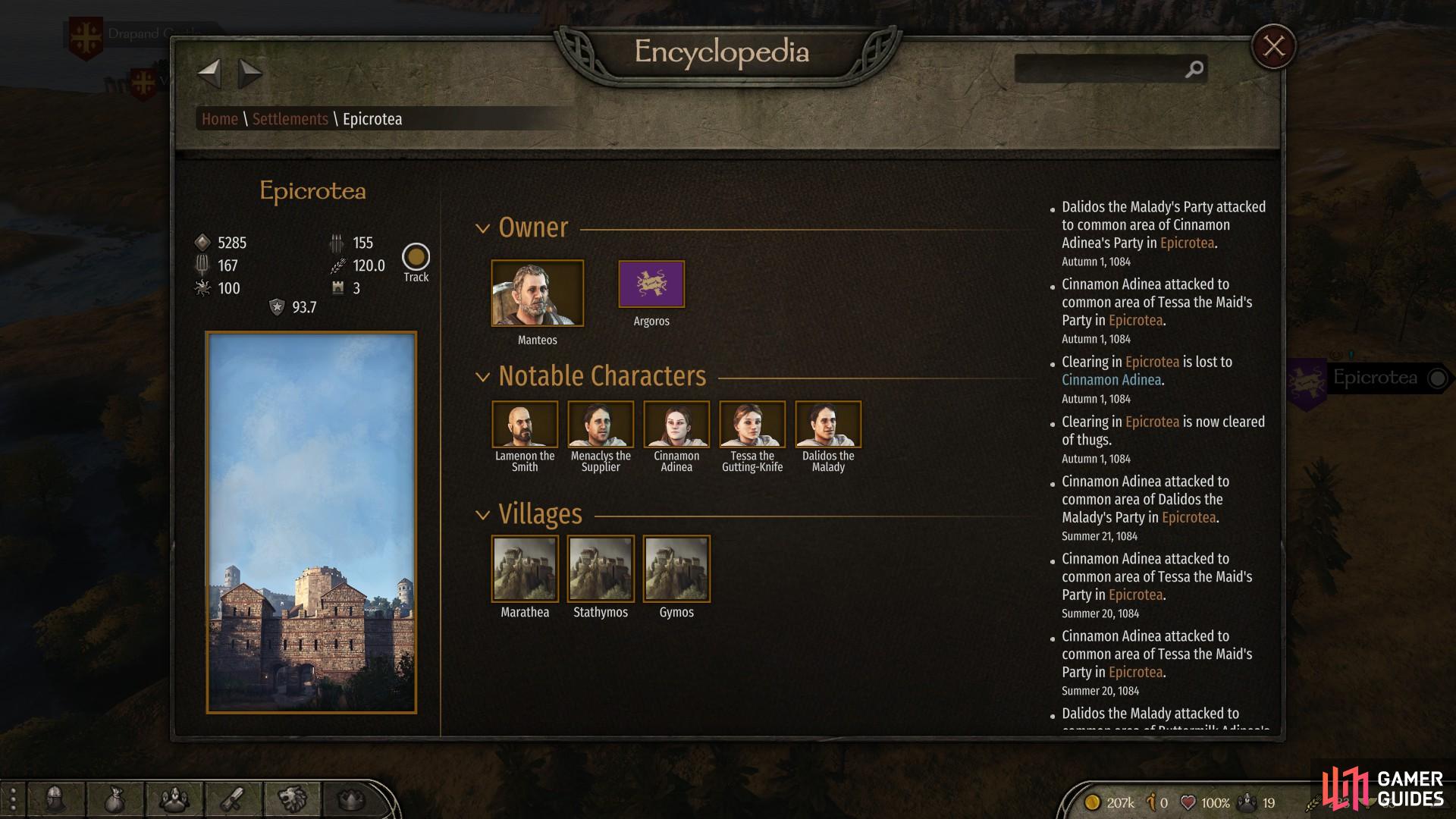
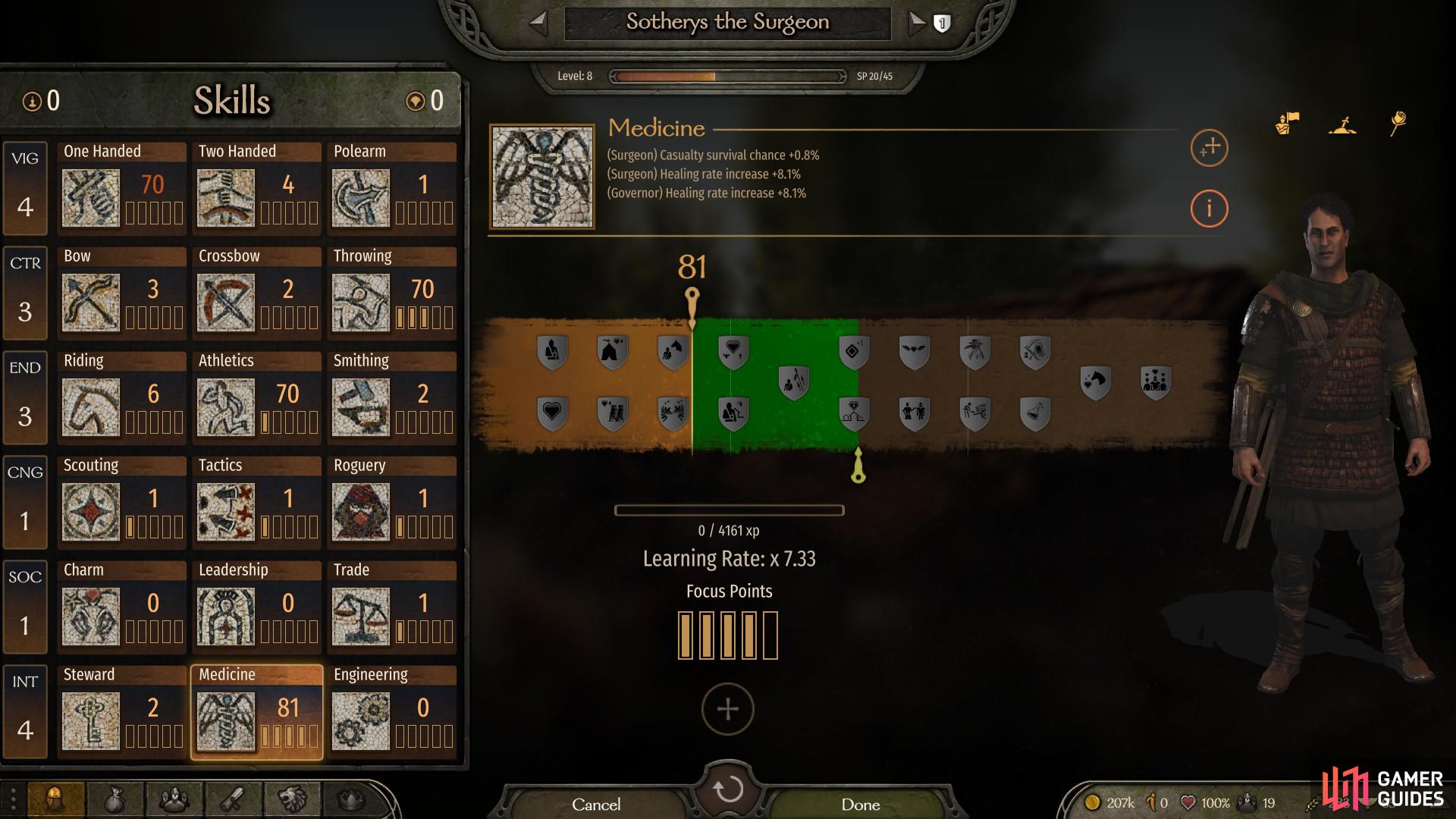
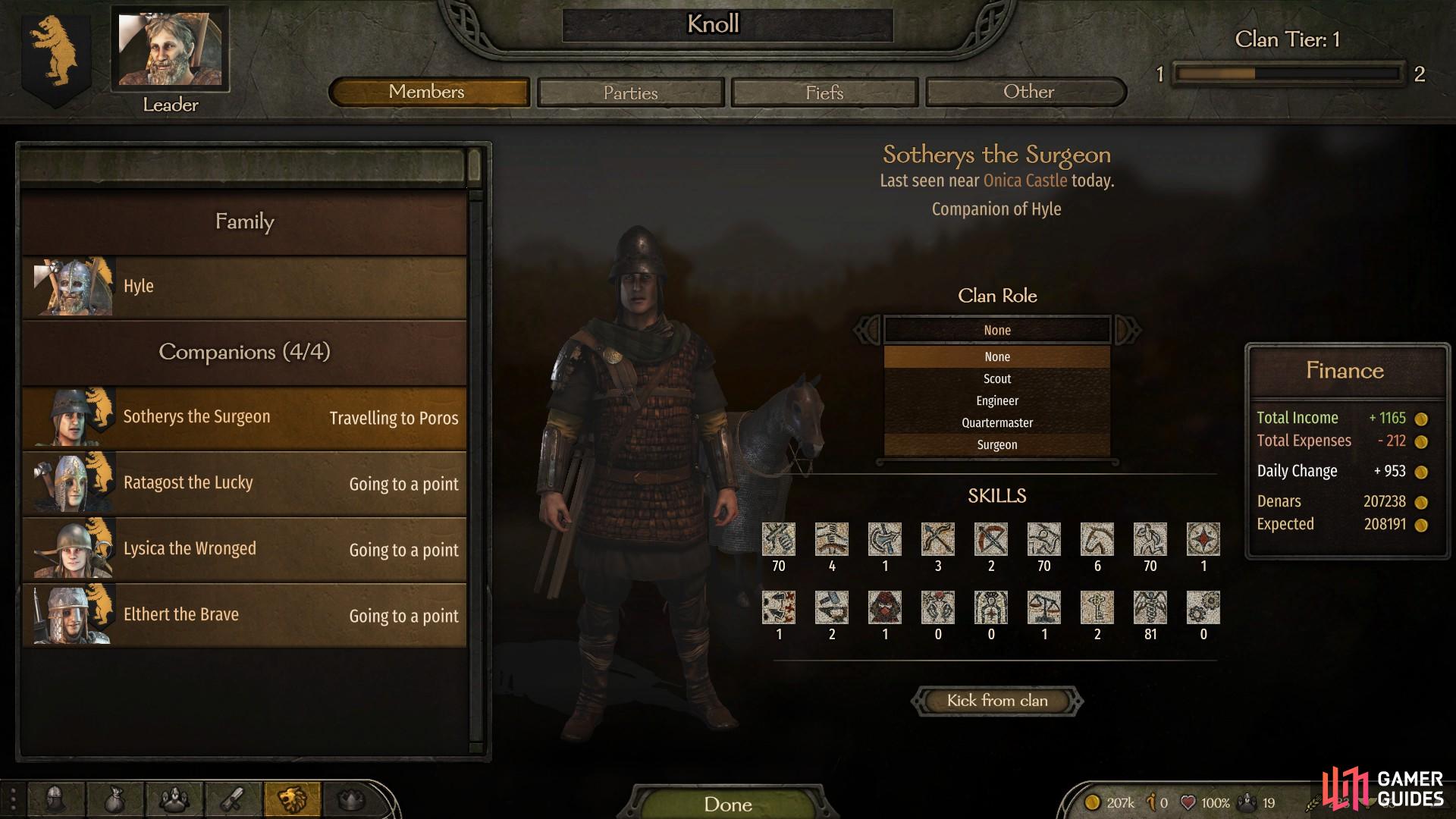
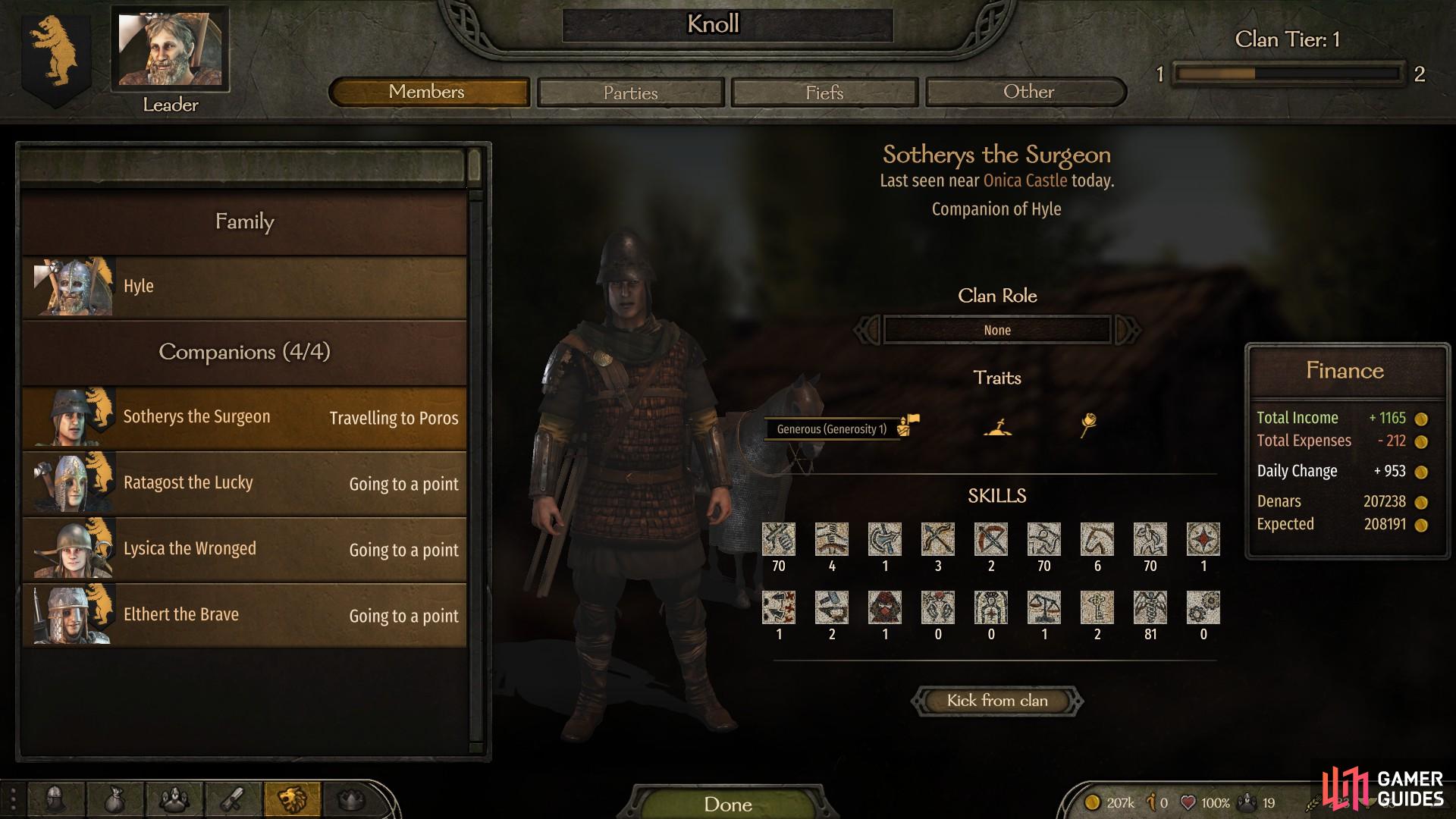


 Sign up
Sign up
No Comments